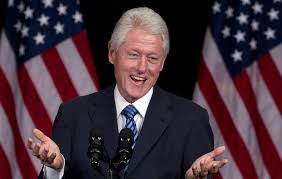President Clinton approved a plan to arrange more than $4 billion in energy aid to North Korea during the next decade in return for a commitment from the country's hard-line Communist leadership to freeze and gradually dismantle its nuclear weapons development program. "This agreement will help achieve a longstanding and vital American objective -- an end to the threat of nuclear proliferation on the Korean Peninsula,"
"This agreement is good for the United States, good
for our allies, and good for the safety of the entire world," Mr.
Clinton said in a brief appearance in the White House press room. "It's a crucial step toward drawing North Korea into the
global community."
The accord calls for a consortium of nations, led by South Korea and
Japan, to provide the North with two light-water nuclear reactors,
designed in a manner that makes it far more difficult for the North to
convert nuclear waste into atomic weapons.
But the agreement also allows North Korea to keep those rods for an
unspecified number of years. This provision means that the potential
that North Korea could break its agreements and quickly produce nuclear
weapons will not disappear until the end of the decade.
American officials said that after some initial balking, Seoul had
agreed to pay somewhat more than 50 percent of the cost of building the
reactors -- the design of which will be based on a nuclear plant in
Ulchin, South Korea -- and that Japan would probably pay 30 percent or
more.
Following the collapse of this agreement in 2002, North Korea claimed
that it had withdrawn from the NPT in January 2003 and once again began
operating its nuclear facilities.
But what happens next? And who is in a position to lay down the law to
North Korea and its nuclear program? Its closest ally China is reluctant
to go further than a statement of condemnation and Pyongyang is already
subject to the strictest sanctions in the world. There are few options
left, short of cutting off the power supplies -- in effect, turning off
the lights in North Korea.
More to come,
Wagg Dogg


